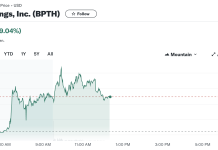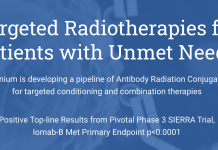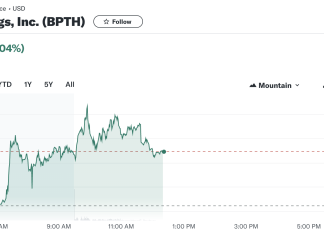Ionis Pharmaceutical Inc. (NASDAQ: IONS) has revealed that its partner, Roche, is designing a new second phase study assessing tominersen Huntington’s disease. Tominersen could assist young adult patients with reduced disease load, according to experimental post-hoc studies conducted after dosing in the third phase GENERATION HD1 trial was halted. These findings need to be confirmed in a placebo-controlled, randomized trial.
Tominersen can potentially reduce the HD disease load
Neurological programs franchise leader and chief scientific officer of Ionis C. Frank Bennett said, “These findings are promising and warrant a new study designed to test tominersen in this specific patient group. We are pleased that Roche has determined that there is a path to advance the tominersen development program. This is an encouraging development for the HD community. We and Roche are grateful to the HD community’s continued partnership.”
Roche is currently planning a Phase II clinical study to evaluate multiple tominersen doses in a teen patient population with a reduced disease load. Also, Roche will host a series of webinars beginning January 20, 2022, for the scientific public to review the results from the post-hoc examination of the GENERATION HD1 research findings and next measures for the tominersen initiative.
Tominersen is an antisense medication
Tominersen, also known as IONIS-HTTRx or RG6042, is an experimental antisense medication that works by reducing the synthesis of all versions of the huntingtin protein (HTT) and the mutant variation mHTT. Roche licensed Ionis’ experimental medication in December 2017. GENERATION HD1, GEN-EXTEND, and GEN-PEAK were all part of the tominersen clinical development project.
Huntington’s is a rare hereditary disorder that causes brain nerve cells to break down, resulting in difficulties with an individual’s ability to think, move, and operate and increasing handicap and functional decline. It has a terrible effect on persons who have the condition, and because HD is genetic, it has a long-term impact on whole families. The disease’s motor onset is followed by a 10- to 20-year survival period. Currently, there is no known treatment for HD, and there are no approved treatments for the underlying cause.















